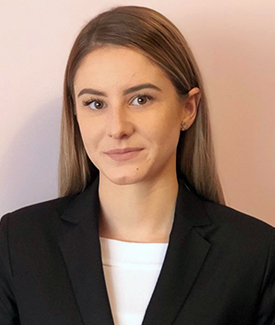
What were you doing before the MCL?
Prior to joining the MCL, I was working as in-house legal counsel for a top bank in Romania. I was part of the litigation department, providing opinions on legal matters and negotiating and drafting contracts. Later, I joined the Corporate Governance department where I was involved in the preparation of contractual documentation for the sale and purchase of other enterprises and drafting of meeting papers, briefs, and reports.
What were your impressions of the MCL?
I chose the MCL because it is a well-structured programme that combines a practical dimension and a rigorous academic approach. The small size of the MCL cohort (25 students) and the exposure to complex real-life transactions as part of the Deals course makes this programme stand out from other general masters’ programmes.
In Deals we examined four real-life transactions covering different practice areas such as private and public M&A, venture capital and project finance. With each transaction, we were introduced to the economic fundamentals underlying the deal, considered the documentation likely to be used, assessed ways the deal structure might be improved and canvassed plausible alternative options.
The one term MCL modules give you the chance to understand thoroughly the theoretical principles underlying specific corporate law areas and to analyse the approach of major trading countries as regards, for example. the corporate income tax system or the merger control regime chosen.
What are your post-MCL plans and have they changed due to taking the MCL?
After the MCL, I plan to qualify as a lawyer and apply what I have learnt in practice, in order to deliver high quality, commercially relevant advice to clients.





